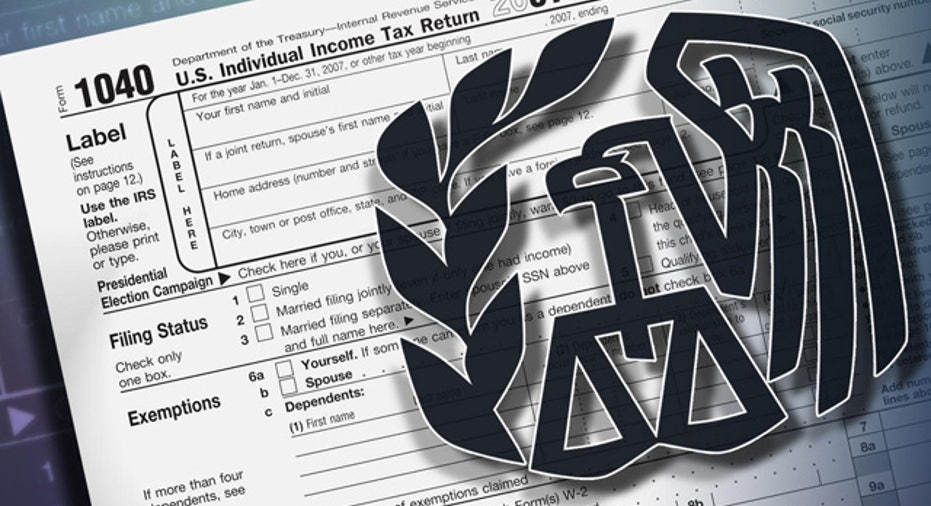Who Has to File Taxes?

Believe it or not, some people make it through tax-filing season without any hassle. That's because the Internal Revenue Service doesn't require them to file taxes. Unfortunately, most of us aren't that lucky. So just who has to file a tax return?
ACA premium credit claim
If you got health care coverage as required by the Affordable Care Act, also referred to as ACA or Obamacare, you might need to file a return.
This is the case if you qualified for federal help in buying your health care coverage through the health insurance marketplace. If advance payments of the ACA premium tax credit were made for you, your spouse, or a dependent who obtained such marketplace medical coverage, that amount must be reported by filing a Form 1040 tax return and Form 8962, Premium Tax Credit.
This will ensure that you got the appropriate tax credit in advance. If you received too much premium help, you'll have to repay it with your return filing. If you did not get enough, you can collect the extra when you file.
File a return
In most cases, 3 things must be considered when determining whether you have to file a return: your age, your filing status and your income. Generally, once you reach a certain income level, the law requires you to file. The amounts are adjusted annually for inflation.
The income amounts also are based on taxpayer age on the last day of the tax year.
Individuals younger than age 65 must file if they make certain amounts. The earnings threshold amounts go up a bit for older (65-plus) individuals.
Regardless of age, the earnings target is the same for married couples who file separate tax returns.
In most situations, your age for tax purposes depends on how old you were on the last day of the year. But when it comes to determining whether you have to file a return, the IRS says if you turned 65 on New Year's Day, you are considered to be 65 at the end of the previous tax year. The 1-day grace period allows you to use the higher income thresholds to determine whether you must file a tax return.
Dependents and filing
The IRS also has different rules for dependents who earn money. And even though it's children we're usually talking about, the IRS doesn't make it easy, setting different earning standards for the 2 types of income -- unearned or earned -- that trigger filing requirements.
Generally, a child must file a return and pay tax due. But the amounts that trigger the filing depend on the type of income:
- Earned, generally characterized as a salary, wages or tips. It also includes taxable scholarships and fellowship grants.
- Or unearned, which includes investment interest or dividends, capital gains, unemployment benefits and some trust distributions.
The amount of each type of earnings that triggers a young person's filing requirement is adjusted each year for inflation and is calculated using a formula that factors in the annual standard deduction amount.
Older individuals and persons of any age who are blind also must make some extra calculations to determine if they need to file a Form 1040.
Self-employment earnings
Don't forget about self-employment earnings, whether you're a teenager running a neighborhood lawn service or an adult with a 10-person manufacturing operation. This money counts toward determining if you have to file a return, regardless of whether it was your sole source of income or just an occasional side job to make a little extra cash.
If your annual gross self-employment income is at least as much as the income level for your filing status, you have to send in a Form 1040 and Schedule C or Schedule C-EZ reporting your earnings.
You also must file a Schedule SE to pay self-employment tax if your net earnings exceed $400.
When it pays to file
For those few who don't legally have to file, it sometimes pays to send in a return anyway.
This is the case for individuals who don't earn much but might be eligible for the earned income tax credit. This benefit is available to qualified individuals even if they owe no tax, meaning they would get money back from the federal government. Many people think the credit is available only to parents. It's not. But the credit amount is greater for eligible low-wage taxpayers with children.
Plus, the IRS says that most individual taxpayers are due a tax refund. But those taxpayers must send in a Form 1040 or Form 1040A or Form 1040EZ to get that cash.
You can check out the filing requirements section of IRS Publication 17 or the instructions for your tax return for more details on specific filing circumstances.
Copyright 2016, Bankrate Inc.



















